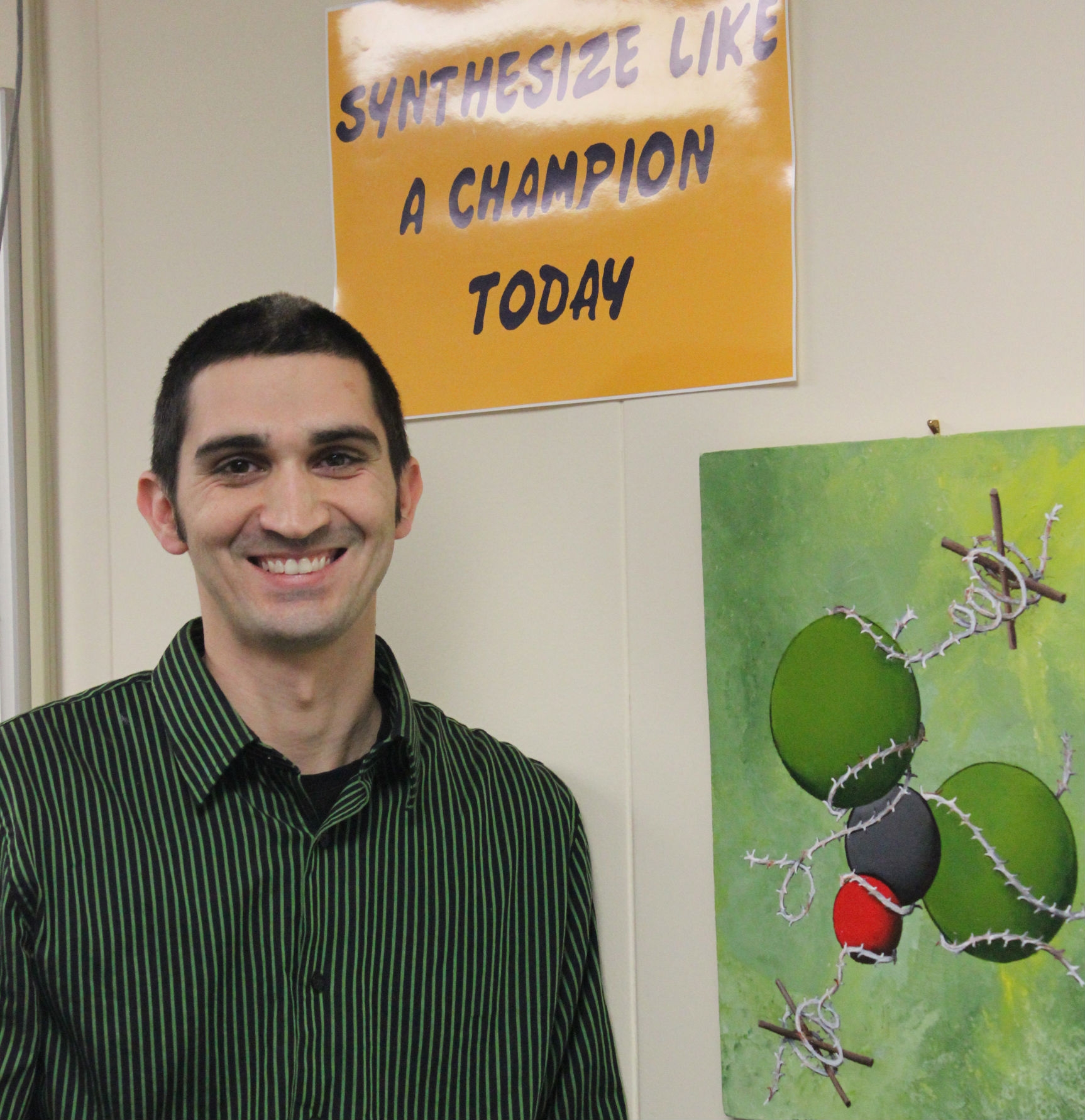Temple chemist receives Kaufman New Investigator Award to support research
The two-year, $150,000 grant will support Wuest’s research on developing new molecules to function as therapeutics that could inhibit the processes of bacterial biofilms, which cause bacteria to become resistant to antibiotics.
Biofilms are any group of microorganisms, such as bacteria, in which cells stick to each other on a surface. They are especially prevalent in hospital settings and can lead to chronic microbial infections such as MRSA, urinary tract infections, catheter infections, joint prostheses and heart valve infections.
“Our group is interested in molecules that are involved in the biofilm process,” said Wuest, who joined Temple’s chemistry faculty in 2011. “We focus on making modified compounds that mimic the natural shape but are strategically designed to shutdown biofilm formation. The general idea is to confuse the bacteria into using our compounds, short circuit the system, and ultimately kill the bugs.”
Wuest’s group is working with the molecule cyclic di-GMP which was discovered 25 years ago but gained interest in the past decade among biologists and chemists as it is found in a majority of bacteria. They are one of only a handful of research groups focusing on this molecule as a novel way of attacking the biofilms-infection problem.
“Currently, there are no therapeutics on the market that act as biofilms inhibitors,” he said.
The new grant is one of six awarded by the Kaufman Foundation, which is part of the Pittsburgh Foundation, to support cutting edge research at institutions across Pennsylvania. In all, $1.6 million was awarded to researchers at Temple, Drexel University, Carnegie Mellon University, the University of Pittsburgh and Penn State University.
Kaufman, a former chemist, passed away in September 2010, leaving his estate of almost $50 million to the Pittsburgh Foundation. Approximately $40 million was assigned to the Charles E. Kaufman Foundation to support new research initiatives at Pennsylvania institutions of higher learning in chemistry, biology and physics “for achievement in and contribution to the field and humanity.”
Wuest said that the funding will be used mainly to support research assistants in his lab, allow him and his students to travel to conferences to promote their research and also obtain important data which will allow him to apply for additional support from other funding agencies.
“These types of grants are great for both recognition of our group’s research and Temple University,” said Wuest. “It really does help move research along for our group and, more importantly, validates that what we are working on is both important and worth funding by other organizations.”
